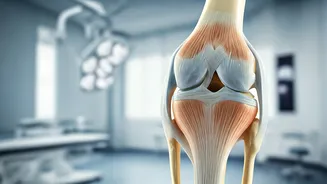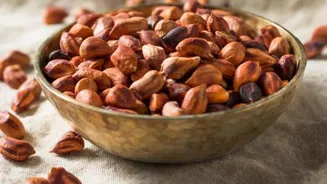Cleanliness First
During seasonal transitions, viruses and bacteria find ideal conditions to spread. To counter this, keeping your surroundings clean is paramount. Make
it a routine to thoroughly disinfect frequently touched surfaces, like doorknobs, light switches, and countertops. Regularly washing your hands with soap and water, especially after being in public places or touching potentially contaminated surfaces, creates a primary barrier against infection. These practices significantly reduce your exposure to harmful germs, thereby decreasing the likelihood of falling sick during these times.
Prioritize Sleep & Exercise
Maintaining a steady sleep schedule and incorporating regular exercise into your daily routine is incredibly beneficial during seasonal shifts. Adequate sleep is when your body repairs and regenerates itself, fortifying the immune system and increasing resilience against external stressors. Aim for a consistent sleep cycle; try to go to bed and wake up around the same time each day, even on weekends. Complement this with regular physical activity, which not only boosts your immune function but also keeps your body acclimatized to the sudden changes in the environment. A simple walk, yoga, or any form of exercise you enjoy can significantly improve your well-being.
Nourish Gut Health
A healthy gut plays a vital role in strengthening your overall immunity, especially when seasons are in flux. The gut microbiome houses a significant portion of the body's immune cells. Introducing probiotics into your diet is a straightforward method to promote gut health. Foods like yogurt, kefir, and various fermented foods are rich in beneficial bacteria, such as Lactobacillus and Bifidobacterium. These probiotics help maintain a balanced digestive system, fostering a strong defense against illnesses. Consider including a serving of these items daily to maintain a healthy gut and boost your body’s ability to ward off seasonal sicknesses.
Dress Appropriately
Adapting your clothing to the changing weather conditions is a crucial step in maintaining your health. The key is to dress in layers. As temperatures fluctuate throughout the day, being able to adjust your clothing allows you to remain comfortable and prevent your body from being exposed to unnecessary temperature shocks. Avoid staying in damp clothes for extended periods, as they create a breeding ground for bacteria and viruses. Wearing appropriate attire is a straightforward yet effective way to protect your body from catching seasonal infections, ensuring that you remain healthy and active throughout the transition.
Boost Natural Immunity
Fortifying your immune system naturally is one of the most proactive ways to guard against seasonal illnesses. A diet rich in vitamins and essential nutrients provides your body with the tools it needs to fight off infections. Consume plenty of vitamin-rich foods, especially citrus fruits, leafy greens, and nuts. Citrus fruits, such as oranges and lemons, are packed with Vitamin C, a powerful antioxidant that supports immune function. Leafy greens, including spinach and kale, provide essential vitamins and minerals. Nuts contribute healthy fats and further boost your immunity. By incorporating these food items into your daily meals, you empower your body to adapt more effectively to seasonal changes and reduce the likelihood of getting sick.
Stay Hydrated Well
Remaining well-hydrated is essential for maintaining your health, especially during the periods when seasons shift. Dehydration can lead to fatigue and compromise your immune defenses, making you more susceptible to illnesses. Regardless of the temperature outside, it's vital to drink an adequate amount of fluids throughout the day. Water is the simplest and best choice, but you can also diversify with herbal teas or warm soups. These not only contribute to your fluid intake but also provide additional health benefits, like soothing the respiratory system. Make a conscious effort to stay hydrated to support your body's natural defenses and keep you feeling your best during these transitional periods.



















